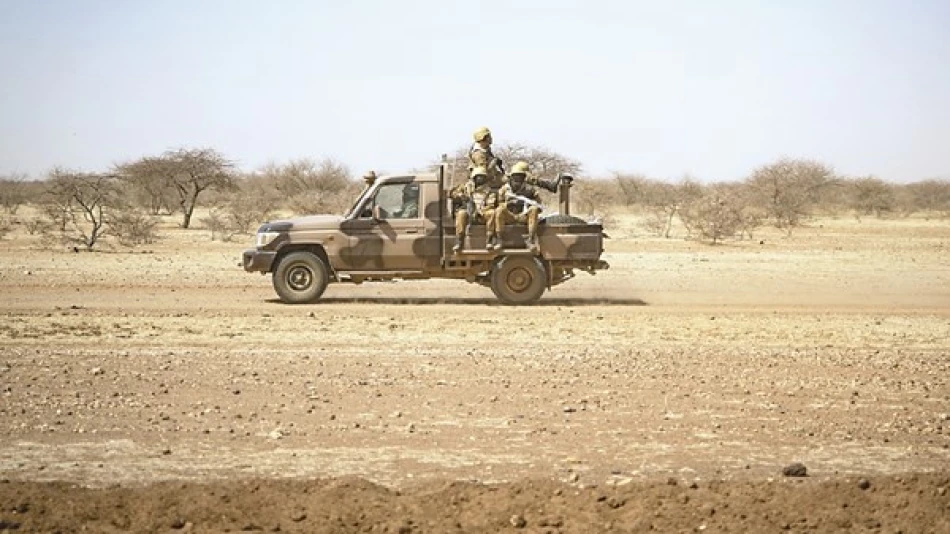
Deadly Attack Rocks Burkina Faso Military Base, Dozens of Soldiers Killed
Burkina Faso Military Base Attack Kills 50 Soldiers as Sahel Security Crisis Deepens
A devastating assault on a military installation in northern Burkina Faso has left approximately 50 soldiers dead, marking another deadly escalation in the West African nation's nearly decade-long battle against jihadist insurgency. The attack underscores the persistent security vacuum that has plagued the Sahel region despite multiple international interventions and military coups promising enhanced protection.
The Dargo Base Assault
Around 100 armed militants stormed the military base in Dargo town, located in Boulsa province in northern Burkina Faso, on Monday. Local leaders and residents reported that the attackers not only inflicted heavy casualties but also systematically looted and burned the facility after overwhelming government forces.
The coordinated nature of the assault—involving a substantial force of militants and resulting in complete destruction of the base—suggests a level of operational sophistication that has become increasingly common among jihadist groups operating in the region.
A Security Crisis Nearly a Decade in the Making
Since 2015, Burkina Faso has been trapped in a spiral of violence perpetrated by armed groups linked to international terrorist organizations, primarily affiliates of Al-Qaeda and the Islamic State. According to conflict monitoring organization ACLED, this insurgency has claimed over 26,000 lives and displaced nearly two million people—roughly one-tenth of the country's entire population.
The Human Cost
The displacement crisis has created one of Africa's fastest-growing humanitarian emergencies. The two million internally displaced persons represent not just statistics but entire communities uprooted from traditional livelihoods, straining urban centers and refugee camps across the region.
Military Coups and Unfulfilled Promises
Burkina Faso has experienced two military coups since 2022, with each successive military leadership promising enhanced security measures and more effective counterterrorism operations. However, attacks like the Dargo assault demonstrate that military rule has not translated into improved security outcomes for either civilians or military personnel.
The current military government, led by Captain Ibrahim Traoré, came to power specifically criticizing previous administrations' failure to address the security crisis. Yet the persistence of large-scale attacks suggests that changing leadership alone cannot address the complex web of factors fueling the insurgency.
Regional Implications and International Response
The deteriorating situation in Burkina Faso reflects broader challenges across the Sahel region, where Mali and Niger face similar jihadist threats. The withdrawal of French forces and the scaling back of international missions have created security vacuums that local militaries struggle to fill.
The Domino Effect
Instability in Burkina Faso has ripple effects across West Africa, with attacks increasingly spilling over into previously stable coastal nations like Ghana, Togo, and Benin. This expansion threatens to destabilize a much larger swath of the continent, potentially affecting millions more people and disrupting regional economic integration efforts.
The Dargo attack serves as a stark reminder that despite years of international attention and billions in security assistance, the fundamental drivers of extremism in the Sahel—including governance failures, economic marginalization, and ethnic tensions—remain largely unaddressed. Without comprehensive approaches that go beyond military solutions, the region appears destined for continued cycles of violence and instability.
Most Viewed News

 Layla Al Mansoori
Layla Al Mansoori






